Wikileaks founder Julian Assange is due to appear in a US court on Wednesday, where he will formalise a plea deal and leave a free man following a 14-year legal battle.
Mr Assange is expected to arrive in the Northern Mariana Islands, an American territory in the Pacific. On Tuesday, he left a British prison and flew to the Thai capital Bangkok for refuelling.
US officials were pursuing Mr Assange, 52, over charges related to a huge disclosure of secret files in 2010, which they said put lives in danger.
Reacting to the deal – which will see Mr Assange plead guilty to one charge – his wife Stella told the BBC she was “elated”.
As part of his lengthy legal marathon, Mr Assange has spent the last five years behind bars in the UK, resisting American attempts to extradite him.
He also faced separate charges of rape and sexual assault in Sweden, which he denied. He spent seven years hiding in Ecuador’s London embassy, claiming the Swedish case would lead him to be sent to the US.
Swedish authorities dropped the case in 2019 and said that too much time had passed since the original complaint, but UK authorities later took him into custody. He was tried for not surrendering to the courts to be extradited to Sweden.
In the US, Mr Assange was charged with conspiracy to obtain and disclose national defence information, following the massive Wikileaks disclosure in 2010.
Wikileaks had released a video from a US military helicopter which showed civilians being killed in the Iraqi capital Baghdad.
It also published thousands of confidential documents suggesting that the US military had killed hundreds of civilians in unreported incidents during the war in Afghanistan.
The revelations became a huge story, prompting reaction from all corners of the globe, and led to intense scrutiny of American involvement in foreign conflicts.
The Northern Mariana Islands, where Mr Assange’s plea deal is expected to be made official, is a remote Pacific archipelago and US commonwealth. It is much closer to Australia than US federal courts in Hawaii or the continental US.
In exchange for pleading guilty to a single charge under the Espionage Act, Mr Assange will spend no time in US custody and will receive credit for the time spent incarcerated in the UK.
He will ultimately return to Australia, according to a letter from the US Justice Department.
In a post on X, Wikileaks said that Mr Assange left London’s Belmarsh prison on Monday after 1,901 days in a small cell.
Video shared by the website showed Mr Assange, dressed in jeans and a blue shirt, being driven to London’s Stansted Airport before boarding an aircraft. He was later pictured inside the plane, too.
Commenting on the footage, his brother Gabriel said it was almost time for Mr Assange’s followers to “have a drink and a celebration”.
Stella Assange thanked Mr Assange’s supporters for their support, and told BBC Radio 4 of her delight that an agreement had been reached.
She said the preceding days had been “touch-and-go” and “non-stop”, and that she was feeling “a whirlwind of emotions”.
Mrs Assange said she was very limited in what she could say about the deal ahead of her husband’s court appearance. “I don’t want to jeopardise anything”, she told the Today programme.
She said the priority for her husband was to “get healthy again”, be in touch with nature, and for the family to have “time and privacy”.
Stella also confirmed that the couple’s two young children were in Australia with her. She said she had not yet told them that their father was due to be freed – only that they were going to visit family and that there was “a big surprise” waiting for them.
She later told the BBC’s Newshour programme: “We haven’t had much time to talk about the future – the first thing is that he will have to pay the Australian government $500,000 (£393,715) back for the chartered flights.”
Mr Assange’s lawyer, Richard Miller, declined to comment on the latest development when contacted by CBS. The BBC has also contacted his US-based lawyer.
Mr Assange’s legal team and wife had long claimed that the case against him was politically motivated, and called on US President Joe Biden to drop the charges.
In April, Mr Biden said that he was considering a request to do so from Australia, whose prime minister said the case had “dragged on for too long”.
Mrs Assange suggested a “breakthrough” was finally reached after the UK High Court began to consider her husband’s constitutional protections under the freedom of the press.
Reaction has been mixed. Former Vice President Mike Pence strongly criticised the plea deal, calling it a “miscarriage of justice”. Others welcomed the news, including the United Nations, whose spokesperson said the day marked “significant steps towards definitively settling this case”.
US prosecutors had originally wanted to try the Wikileaks founder on 18 counts – mostly under the Espionage Act – over the release of confidential US military records and diplomatic messages related to the wars in Afghanistan and Iraq. It said these endangered lives.
Wikileaks, which Mr Assange founded in 2006, claims to have published over 10 million documents.
One of Mr Assange’s most well-known collaborators, US Army intelligence analyst Chelsea Manning, was sentenced to 35 years in prison before then-president Barack Obama commuted her sentence in 2017.
During his long-running legal battles, Mr Assange has rarely been seen in public and for years has reportedly suffered from poor health, including a small stroke in prison in 2021.
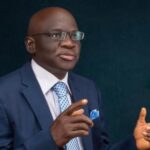
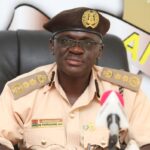


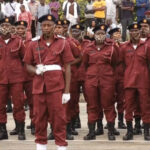
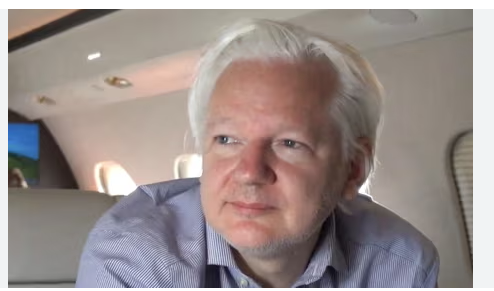
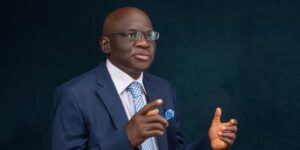
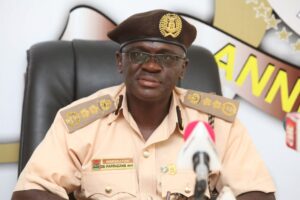


More Stories
Parradang died in hotel room after visit from female visitor, police clarify
Kidnappers kill ex-Immigration CG Parradang in Abuja
Nigerian man Darlington Akporugo arrested a month to wedding over $3m fraud, faces 20 years jail time in U.S.